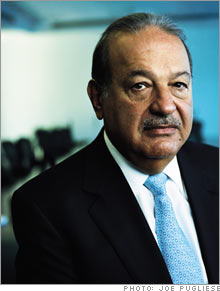
China's 'Queen of Trash' finds riches in waste paper
"I remember what a man in the business told me back then," Zhang Yin said. "He said, 'Waste paper is like a forest. Paper recycles itself, generation after generation.'"Her companies take heaps of waste paper from the United States and Europe, ship it to China and recycle it into corrugated cardboard, which is then used for boxes that are packed with toys, electronics and furniture that are stamped "Made in China" and then often shipped right back across the ocean to Western consumers.
"She doesn't mind putting a lot of money in at the beginning, to build the company."
"My goal is to make Nine Dragons, in three to five years, the leader in containerboards," Zhang said emphatically during a short interview in her Hong Kong office. "My desire has always been to be the leader in an industry."
Zhang does not go into detail about how she made her fortune. In a society known for close ties and hidden deals between government officials and business leaders, she says simply, "I'm an honest businesswoman."
"When her employees asked for a pay raise, she would grant it if it was reasonable," he recalled. "But when her employees made mistakes, she would criticize them severely. She made it clear when to reward and when to punish."
There were occasional threats from competitors, but being a woman was not a problem, Zhang said. "Actually, I didn't find it difficult," she said. "I found men respected me."
She has not lost her ambition, though. Sometimes called the Queen of Trash, she doesn't disown the title. But, she said, "Some day, I'd like to be known as the queen of containerboards."
Source from: http://www.iht.com/articles/2007/01/15/business/trash.php?page= -------------------------------------------------------------------------------------------------
-------------------------------------------------------------------------------------------------Corus takeover: Who is Ratan Tata?
That's a short snapshot of Ratan Tata, 69, who controls the $22bn Tata group, which includes 96 companies manufacturing a range of products from automobiles to watches, steel to fertilisers.
The takeover - the largest by any Indian company - marks yet another transformation in the corporate image of Ratan Tata during his 15 years' stint as the group chairman.
Today, the smooth, suave, and introvert Ratan is being seen as an aggressive and ambitious businessman, whose strategic vision has shifted from local to global.
This change started in February 2000, when Tata Tea purchased the UK-based Tetley for over $400m. In the financial year 2005-06, the group made 14 acquisitions (worth nearly $1.5bn).
In a recent interview to an Indian magazine, Ratan Tata said: "We were very obsessed with ourselves in India. So, I have felt for some time that we didn't need to be that."
Today, nearly a third of group revenues, some $6.7bn, comes from overseas markets.
"I think we've only just begun. If we stay in India, we'll be at a competitive disadvantage," Alan Rosling, director, Tata Sons, which is the group's holding company, told Reuters recently.
Ratan Tata's most important concern, however, was to protect his top lines and bottom lines in the face of ever-increasing competition from domestic and global players.
To achieve this objective, he had no option but to become aggressive, a quality that helped him in other areas.
Source from: http://news.bbc.co.uk/2/hi/south_asia/6071090.stm
---------------------------------------------------------------------------------------------------------------------------------------
3rd Client: Carlos Slim
The Secrets of the World's Richest Man
The portly Mr. Slim is a study in contradiction. He says he likes competition in business, but blocks it at every turn. He loves talking about technology, but doesn't use a computer and prefers pen and paper. He hosts everyone from Bill Clinton to author Gabriel García Márquez at his Mexico City mansion, but is provincial in many ways, doesn't travel widely, and proudly says he owns no homes outside of Mexico.
Mr. Slim's strategy has been consistent over his long career: Buy companies on the cheap, whip them into shape, and ruthlessly drive competitors out of business. After Mr. Slim got control of Telmex in 1990, he quickly cornered the market for copper cables used by Telmex for telephone wires. He bought one of the two main suppliers and made sure Telmex didn't buy any cable from the other big supplier, eventually prompting the owners to sell the company to him.
source from: http://online.wsj.com/article/SB118615255900587380.html?mod=home_we_banner_left



No comments:
Post a Comment